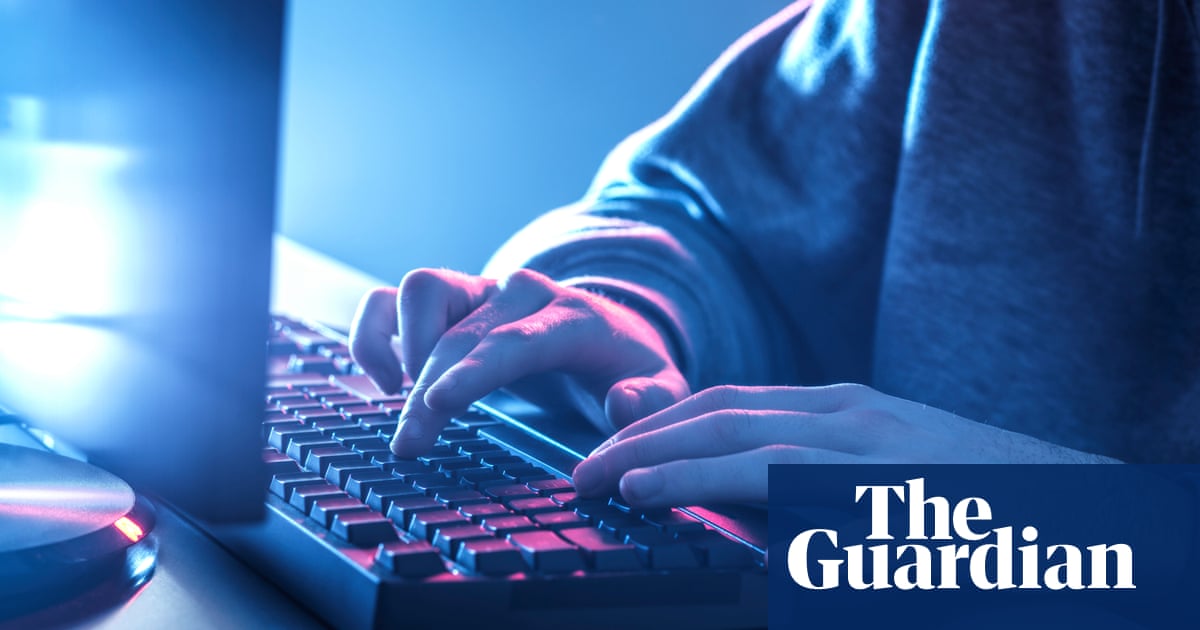Men who engage in the online “manosphere” and the content ofAndrew Tateare often able to express a “strong commitment to equal treatment and fairness”, according to research commissioned by Ofcom.
Prompted by growing concerns about internet misogyny, researchers for the UK communications regulator followed the journeys of dozens of men through online content ranging from the US podcaster Joe Rogan to forums for “incels” (involuntary celibates). They found that while a minority encountered “extremely misogynistic content”, many users of the manosphere were critically engaged, selective and capable of discarding messages that did not resonate with their values.
They found it was far from a unified community: many participants felt the various subcultures under the manosphere umbrella were misunderstood, with extreme misogyny being grouped with benign self-improvement content. Several participants were drawn to it by its perceived humour, open debate and irreverence as well as connecting with views they found about traditional gender roles and family dynamics.
“This research does challenge the assumptions about the experiences and perceptions of individuals consuming manosphere content,”Ofcomsaid.
“Many of the participants expressed a strong commitment to equal treatment and fairness. They showed particular sensitivity to situations they perceived as unjust or discriminatory. This extended to issues specifically concerning men.”
The report’s author, Damon De Ionno, the managing director of Revealing Reality, who were commissioned by Ofcom to produce the study, said it “suggests society has overestimated” the risk posed by the manosphere.
It comes afterrising violenceagainst women and girls (VAWG) in England and Wales. Data published by the National Police Chiefs’ Councilin July 2024found that about 3,000 VAWG offences were recorded by the police in 2022-23, an increase of 37% since 2018, with one in every 12 women a victim each year.
Separate expert studies have found some evidence that the language of the manosphere can escalate into physical violence. Asubmission to parliamentby a group of UK academics cited cases in which incels had gone on to commit offline acts of violence, including Elliot Rodger in Isla Vista in the USA in 2014 and Jake Davison in Portsmouth in 2021.
The Ofcom study involved 38 men, and more misogynistic men may have declined to take part. Some potential recruits refused to take part, considering the government-appointed regulator to be part of the “mainstream”. Perhaps the most impressionable group, boys under 16, were also not included.
The study probed several manosphere subcultures, including “red pill” (men who believe the world is unfair to men) and “black pill” (those who believe unattractive men have very limited options for relationships) communities, incels, “men going their own way” (MGTOW), men’s rights activists,pickup artistsand “looksmaxxing” groups (where young men share tips aboutachieving chiselled cheekbones or “hunter eyes”in an attempt to boost their sexual “market value”), as well as topics surrounding self-improvement, masculinity and gender politics.
Some of the content trawled for the study was obviously misogynistic, including posts condoning sexual violence against women. In other cases the misogyny was more ambiguous, such as self-help posts about boosting sexual success based on assumptions about women’s sexual preferences.
All of the men had engaged with content from Tate, the self-styled misogynist influencer who is facing charges in Britain including rape, human trafficking and controlling prostitution for gain, which he denies.
But one participant said they viewed watching clips of Tate as “entertainment” akin to watching a horror movie or playing Call of Duty, and the researchers said none of the interviewees had agreed with Tate’s most extreme misogyny.
Incel communities contained the most extremely misogynistic content, the Ofcom study found. They were notably full of messages promoting depressive and suicidal outlooks.
“Our research suggests society has overestimated the risk of the manosphere to women,” said De Ionno. “It’s not zero risk, but most of it doesn’t have the power to radicalise people who are pretty discriminating and value-driven.”
The research examined the attitudes of men who had become involved in several different corners of the manosphere from relatively mainstream content creators such as Piers Morgan to more niche groups such as those that talk about being “red pilled”.
One was the MGTOW movement, which discusses living without women. It has been described as misogynistic, but Ofcom’s interviewees insisted it was not because it was about choosing to live without women, not hating them.
One survey participant’s pathway into the MGTOW part of the manosphere began with him being intentionally misidentified as a child’s biological father, known as paternity fraud. Richard became involved in supporting other victims and came to believe that “feminist ideology runs through” the courts system. He stopped dating and said: “Once you’ve red-pilled about all this, you can’t unsee it.”
Another man, Matt, said the MGTOW influencers “prey on any … amount of bitterness and resentment you have in your life from a negative situation”.
Ofcom said: “A minority of participants described encountering extremely misogynistic content online – with the most extreme examples more likely to be found on closed groups or among incel communities.
“These spaces were also notably full of messages promoting ‘black pill’ concepts of self-loathing and hopelessness, as well as depressive and even suicidal outlooks. Participants that were more socially isolated offline tended to have greater depth of engagement within these closed communities, and so may be at greater risk of adopting harmful views or mindsets, due to their strong group identity and the individual’s wider vulnerability.”
